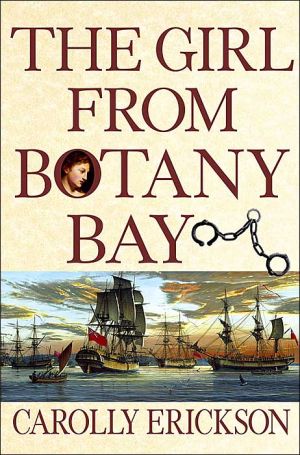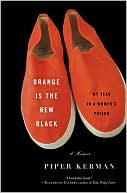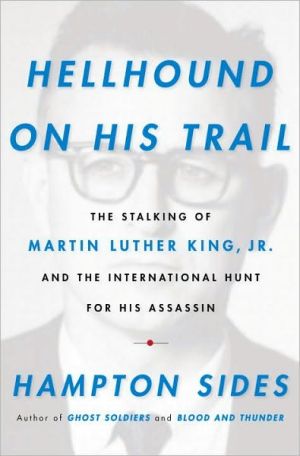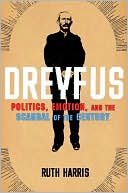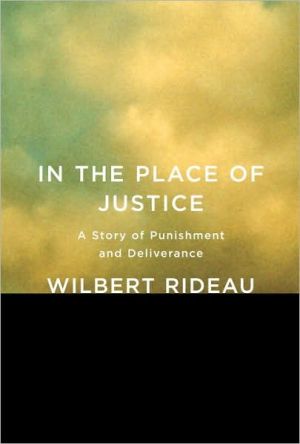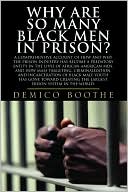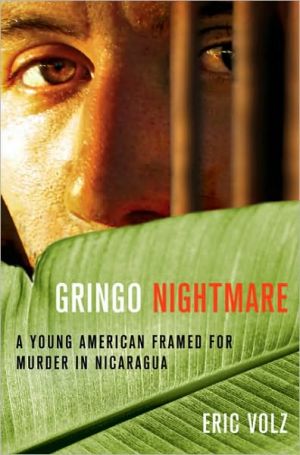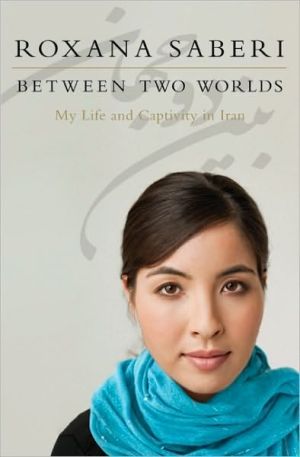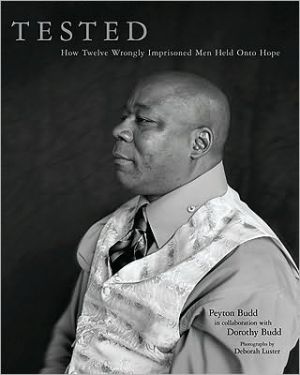Girl from Botany Bay
Acclaim for Carolly Erickson\ "Carolly Erickson is one of the most accomplished and successful historical biographers writing in English."\ The Times Literary Supplement\ The First Elizabeth\ "Even more readable and absorbing than the justly praised works of Tuchman and Fraser. A vivid and eminently readable portrait of history’s favorite Tudor."\ The New York Times Book Review\ "A masterpiece of narrative, a story so absorbing it is as hard to put down as a fine novel."\ Los Angeles Times...
Search in google:
On a moonless night in the early 1790s, prisoner Mary Bryant, her husband William, her two small children, and seven other convicts stole a twenty-foot longboat and slipped noiselessly out of Sydney Cove, Australia, eluding their captors.They sailed north, all the way to Indonesia, traveling some thirty-six hundred treacherous miles in ten weeks---- an incredible feat of seamanship. For a time, Mary and her companions were able to convince the local Dutch colonial authorities that they were survivors of a shipwreck, but eventually the truth emerged and they found themselves back in captivity, in irons, on their way to England for execution.In time, Mary’s fateful journey would win her tremendous admiration. A woman once reviled as a criminal would become a London celebrity, ultimately finding forgiveness and freedom.In The Girl from Botany Bay, distinguished historian and biographer Carolly Erickson tells Mary Bryant’s remarkable story at full length for the first time---- the story of a woman whose impoverished Cornwall childhood led to a life of outlaw daring and thievery, then to harsh imprisonment and exile. Erickson recounts Mary’s bold ventures from her point of view, beginning with her conviction and death sentence for highway robbery. Reprieved, she was sent to New South Wales to serve out her time, one of dozens of female convicts chosen as sexual companions for the hundreds of male convicts destined for settlement in the remote continent of Australia.From Mary’s perilous sea journey to Botany Bay and Sydney Cove, to the inhuman conditions at the penal colony, to the risky escape to the Indonesian island of Timor and the horrors of the sailback to England---- during which Mary’s husband and two children died of disease---- the story is harrowing yet heroic. With the dramatic narrative skill for which she is acclaimed, Erickson brings Mary and her companions to life in compelling detail. All the dangers of seafaring adventure are here: violent storms, near drownings, severe hunger and thirst, and the perils of relentless exposure to sun, wind, and salt spray that left the convicts with their skin scraped raw and their strength leached away.When she finally landed in England and testified before the magistrate’s court, Mary was magnificent in her own defense. No one had the heart to condemn her; had she not, through her suffering, paid for her crimes? Impressed by Mary’s sturdy self-possession and courage, lawyer and author James Boswell came to her rescue, ensuring that "the Girl from Botany Bay," as the newspapers called her, was freed and able to begin a new life.The epic story of Mary Bryant, the brave and resourceful girl from Botany Bay, is compelling narrative nonfiction at its very best. Publishers Weekly Veteran biographer Erickson (Great Harry, etc.) focuses on Mary Broad, who was arrested for robbery in 1786 and transported in sordid conditions to the new penal colony in Australia. But the book is, more generally, a stark and fascinating account of what prisoners endured: in England, where harsh laws protected property in an era of unsettling social change; on board ship; and in the penal colonies themselves, where the convicts and their guards carved a bleak existence out of the inhospitable environment. Life was particularly harsh for women, who, in addition to the usual deprivations, also endured the threat of rape and the responsibilities and sorrows of raising children in dire conditions. Mary Broad, along with several male convicts and her own young children, made a daring escape in a small, stolen boat. Perhaps fortified by stories of the survivors of the Bounty, they sailed along the Australian coast and across open sea to the Dutch settlement of Kupang in Indonesia, where they enjoyed a few months of ease before their recapture. Despite Erickson's speculations, little can be known concretely about Mary as an individual. Her story draws in the reader, nonetheless, and Mary's brief moment of celebrity, when the escape and the well-timed intervention of the writer James Boswell earn her a royal pardon, provides a satisfying end to the unrelenting hardship of her life. Agent, Russell Galen. (Nov.) Copyright 2004 Reed Business Information.
Click to read or download
Chapter 1. Chapter 2. Chapter 3. Chapter 4. Chapter 5. Chapter 6. Chapter 7. Chapter 8. Chapter 9. Chapter 10. Chapter 11. Chapter 12. Chapter 13. Chapter 14. Chapter 15. Chapter 16. Chapter 17. Chapter 18. Chapter 19. Chapter 20. Chapter 21. Afterword. Endnotes. A Note On Sources.
\ From the PublisherVeteran biographer Erickson (Great Harry, etc.) focuses on Mary Broad, who was arrested for robbery in 1786 and transported in sordid conditions to the new penal colony in Australia. But the book is, more generally, a stark and fascinating account of what prisoners endured: in England, where harsh laws protected property in an era of unsettling social change; on board ship; and in the penal colonies themselves, where the convicts and their guards carved a bleak existence out of the inhospitable environment. Life was particularly harsh for women, who, in addition to the usual deprivations, also endured the threat of rape and the responsibilities and sorrows of raising children in dire conditions. Mary Broad, along with several male convicts and her own young children, made a daring escape in a small, stolen boat. Perhaps fortified by stories of the survivors of the Bounty, they sailed along the Australian coast and across open sea to the Dutch settlement of Kupang in Indonesia, where they enjoyed a few months of ease before their recapture. Despite Erickson’s speculations, little can be known concretely about Mary as an individual. Her story draws in the reader, nonetheless, and Mary’s brief moment of celebrity, when the escape and the well-timed intervention of the writer James Boswell earn her a royal pardon, provides a satisfying end to the unrelenting hardship of her life. Agent, Russell Galen. (Nov.) (Publishers Weekly, September 27, 2004)\ Prolific biographer Erickson (Alexandra, 2001, etc.) skillfully renders the extraordinary life of Mary Broad, who survived a voyage to and from a penal colony to become James Boswell’s protégée.\ Born in 1769 and raised in Cornwall, Mary grew up amid filth, violence, and privation in a period of especially hard times: harvests had failed, the fish were not running, the Cornish were starving. Arrested for robbery and sentenced to be hung, the 20-year-old girl was instead sent to the recently established penal colony of New South Wales in Australia, because the British government needed people, women in particular, to settle there. In the fetid prison hulks that dotted Plymouth harbor, imprisoned with prostitutes and habitual criminals, Mary became pregnant before she finally set sail. The 15,000-mile voyage was grueling: space, food, and water were limited, diseases rampant, and sexual abuse common. But Mary survived, giving birth to a daughter en route. When they reached Australia, she married fellow convict William Bryant in order that they could acquire their own land. But crops f ailed, famine was rife, the natives were hostile, and mortality was high; realizing that their lives were even worse than they’d been in England, the Bryants decided to escape. Bringing along Mary’s daughter and newborn son, they stole a boat and sailed with seven other adults up the east coast to Dutch-ruled Batavia, some 4,000 miles away. It was an epic feat, but Mary wasn’t yet safe. Discovered and sent back to England, with both her children dead, she was once more imprisoned. Luckily, her amazing story garnered public sympathy and the support of Boswell, who determined to secure her freedom.\ Compelling tale with a gritty heroine: Broad’s hardscrabble adventures forcefully remind readers that 18th-century life bore very little resemblance to an episode of Masterpiece Theater. (Russell Galen Literary Agency) (Kirkus Reviews, September 15, 2004)\ Praise for Carolly Erickson: "Carolly Erickson is one of the most accomplished and successful historical biographers writing in English." (London Times Literary Supplement)\ "An intimate, richly detailed, and candid portrait...[Erickson's] scholarly insights combine superbly with a mastery of period manners more often found int he best historical fiction." [Kirkus Reviews on Josephine}\ "Carolly Erickson is a most admirable biographer, and this book is highly enjoyable as well as being reliable and acute; indeed, it is popular historical biography at its best." [London Times on Mistress Anne]\ "A masterpiece of narrative, a story so absorbing that it is as hard to put down as a fine novel.l" [LA Times Book Review, on The First Elizabeth]\ "Even more readable and absorbing than the justly praised works of Barbara Tuchman and Antonia Fraser...In Erickson's hands, an entire age comes vividly to life." [The Philadelphia InquirerThe First Elizabeth]\ "[With] dazzling gifts for historical color and detail...rarely before have [Henry VIII's] person and psyche been so brilliantly revealed." [ London Review of Books on GREAT HARRY]\ "A distinguished and highly readable book." (Washington Post Book World, on BLOODY MARY)\ "Erickson [is] a gifted writer with a novelistic flair for detail." (San Francisco Chronicle on MISTRESS ANNE)\ "She has written an admirable biography, graphic, judicious, carefully researched, skillfully constructea dn full of those telling details that are an essential ingredient of the narrator's art." (The new York Times Book Review on Great HARRY)\ "Carolly Erickson's new book...THE FIRST ELIZABETH is a great triumph of compression, clarity and insight, offering the triple delights of fine popular history, scandal-ridden biography and first-rate narrative." (Los Angeles Times on THE FIRST ELIZABETH)\ "A narrative as accomplished as any Ms. Erickson has written...From her crisply written pages there emerges a convincing picture of Charles Stuart....In her skillful portrait are the recognizable features both of the romantic hero of Scotland and of the bitter, disappointed exile." (New York Times Book Review on BONNIE PRINCE CHARLIE)\ \ \
